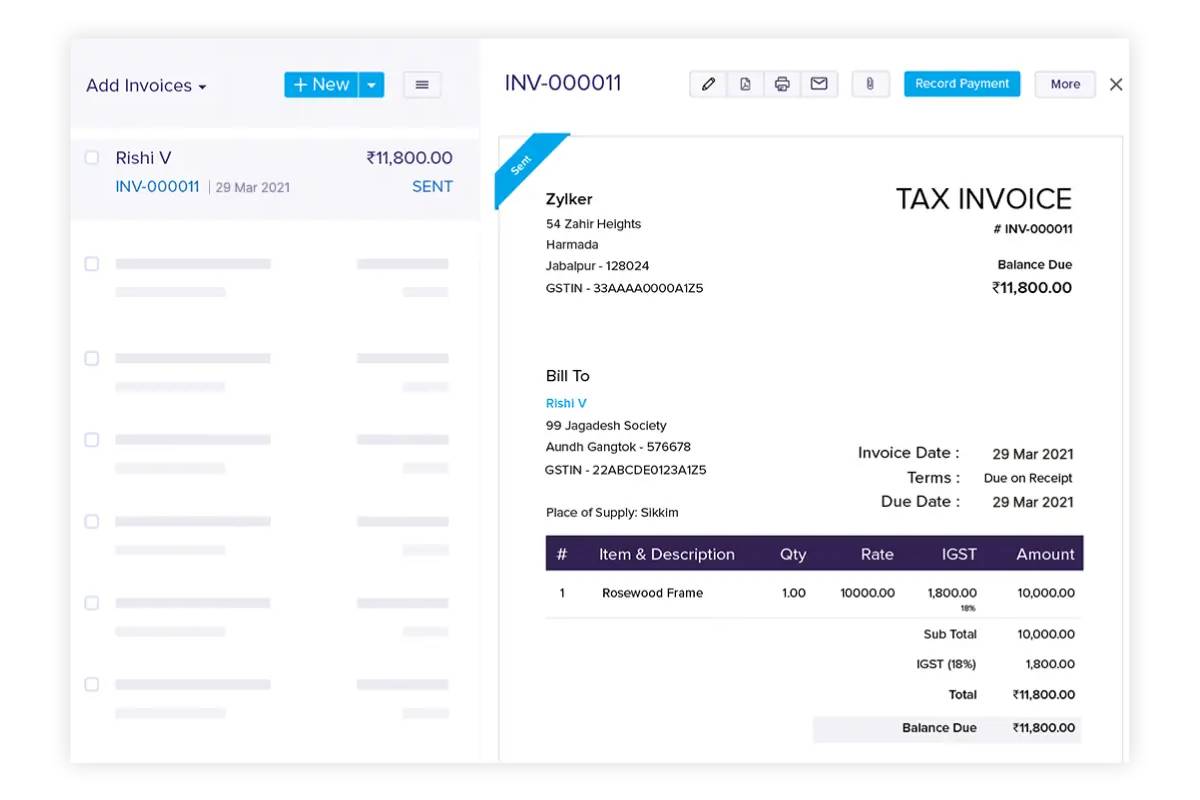
Separating Personal and Business Finances
Running your own business can feel like wearing all the hats — marketer, service provider, admin, and accountant. In the rush of juggling clients and chasing invoices, it’s surprisingly easy to blur the lines between your personal and business finances. That quick Amazon purchase? Business or birthday? That £800 payment? Was it for freelance work or your mate finally paying you back?
If you’re nodding along, you’re not alone — and you’re not doomed. Many freelancers and small business owners start this way. But over time, those blurred lines create confusion, messy tax returns, budgeting headaches, and even HMRC red flags.
The good news? With a little organisation and the right tools, you can separate your personal and business finances, set clear boundaries, and give your business the professional foundation it deserves.
In this guide, we’ll explain why separation is critical, how to open and manage a business bank account, practical steps to stay on track, and tips to make your finances work for you, not the other way around.
Why Separating Your Finances Is a Game-Changer
1. Clarity and Confidence
Mixing personal and business expenses muddles the waters fast.
You might not know:
- How much you’re actually earning from clients
- Whether you’re profitable after costs
- If you’ve already budgeted for that tax bill
Financial separation brings clarity. When income and expenses are tracked in one place, you gain a true picture of your business’s health. It’s easier to make informed decisions, identify problem areas, and celebrate progress.
Anecdote: Jamie, a freelance web developer, used to use one current account for everything. Every tax season was a guessing game. After switching to a business bank account and dedicated budgeting tools, he realised he was underselling himself — and underestimating how much he owed in tax. That one change saved him both stress and money.
2. Easier Tax Time (and HMRC Compliance)
When it’s time to complete your Self-Assessment, digging through mixed transactions is not only a pain but can also lead to mistakes.
HMRC expects accurate, verifiable records, and if they request proof.
You’ll need to show:
- Receipts for business expenses
- Clear income records
- Separation between private and business spending
Having a clean financial system means you’ll avoid penalties, overpayment, or even accidental non-compliance.
3. Professionalism and Credibility
Clients, suppliers, and even potential lenders view a business with its own bank account and invoicing system as more legitimate.
It helps you:
- Build trust
- Get paid faster
- Position yourself as a serious business, not just a side hustle
And let’s face it — it feels good to “pay yourself” from your business, rather than just dipping into the same account whenever needed.
Setting Up a Business Bank Account

Do You Legally Need One?
If you’re a limited company, yes — you must have a separate business account. Your company is a separate legal entity, and its finances must be kept distinct.
If you’re a sole trader, a business bank account isn’t legally required, but it’s strongly recommended. HMRC doesn’t demand it, but they do expect clean and accurate records — something that’s far easier with a dedicated account.
What to Look For in a Business Account
Not all business accounts are created equal.
Here are key things to consider:
- No or low monthly fees. Many challenger banks offer fee-free plans.
- Easy integration with accounting tools (e.g., FreeAgent, QuickBooks, Xero)
- Real-time notifications for payments
- Export options for tax returns
- Customer service that supports freelancers and sole traders
Recommended UK Business Banks for Freelancers
| Bank | Best For | Monthly Fee | Features |
|---|---|---|---|
| Starling Bank | App-based banking, no fees | £0 | Instant alerts, invoicing, tax pots |
| Mettle (by NatWest) | Free account with FreeAgent | £0 | Built for freelancers, tax tools |
| Monzo Business | Integrated budgeting | £5–£10 | Invoicing, integrations, tax insights |
| Tide | Quick setup, smart tools | £0–£5 | Expense tracking, categorisation |
| Revolut Business | Multi-currency needs | £0–£25+ | International payments, expense cards |
Pro Tip: If you bank with Mettle and use FreeAgent, you may get your accounting software for free — a big win for sole traders.
Creating Systems for Financial Separation
Once you’ve opened a business account, here’s how to keep things streamlined.
1. Use Your Business Account Exclusively for Work
Deposit only your business income and pay only business expenses from this account.
This includes:
- Client payments
- Software subscriptions
- Office supplies
- Travel for work
Avoid using it for your personal groceries or Netflix bill. Every exception creates clutter.
2. Pay Yourself a “Salary” or Drawings
Once a month, transfer a fixed amount from your business account to your personal one. This acts as your salary or drawings.
- If you’re a sole trader: This isn’t technically a salary, but a regular transfer still creates structure.
- If you’re a limited company: You’ll need to pay yourself a salary via PAYE and possibly dividends.
This method helps you:
- Budget better in your personal life
- Prevent unplanned spending from your business account
- Track how much your business can sustainably afford to pay you
Budgeting for Your Business

The Importance of a Cash Buffer
Having financial separation lets you start building a buffer — a pot of money for slow months, unexpected costs, or late invoices.
Aim to set aside:
- 10–20% of your monthly income into a business savings or “rainy day” pot
- Separate pots for tax, software renewals, or marketing
Apps like Monzo Business and Starling Spaces let you do this easily.
Tax Planning
The golden rule is to set aside money for tax as you go. Don’t wait until the deadline—you’ll thank yourself later.
A good rule of thumb:
- 20–30% of each payment (depending on income level)
- Use a dedicated pot or savings account for this
Some banking apps automatically calculate this for you or let you “sweep” funds after each deposit.
Bookkeeping Tips for Separated Finances
Now that you’ve got separation, don’t let the records fall apart.
Use Simple Software
Even if you’re not VAT registered, tools like FreeAgent, QuickBooks, or Xero can:
- Connect to your business bank account
- Auto-categorise transactions
- Track invoices and expenses
- Generate tax reports
Set a Weekly or Monthly Admin Routine
Book 30 minutes each week to:
- Reconcile transactions
- Upload receipts
- Send invoices
- Review cash flow
Little and often beats the last-minute scramble every time.
Real-World Story: Natalie the Virtual Assistant
Natalie started her VA business as a side hustle. She used her personal account for everything, often forgetting which transactions were business-related. Tax time meant combing through 12 months of statements and manually adding up expenses.
After opening a Tide business account and setting up a FreeAgent account, she began logging expenses weekly and clearly separating income. Her accountant praised her new setup, and she saved £300 in unclaimed costs she would’ve otherwise missed.
Natalie’s reflection? “It was a 30-minute task that changed everything.”
Mistakes to Avoid
- Using one account for everything — even if you label transactions, it creates more admin and risk.
- Not saving for tax — it’s your responsibility as a freelancer, and HMRC won’t accept surprise as an excuse.
- Mixing receipts — keep digital or physical copies for every business purchase.
- Paying yourself irregularly — you deserve structure and predictability.
- Relying on memory — don’t assume you’ll remember what a £17 charge was for six months later.
Conclusion: Draw the Line, Reap the Rewards

At first, setting up a business bank account or separating your finances might seem like just one more task. But in reality, it’s a powerful step toward clarity, control, and peace of mind.
By drawing that line between business and personal money, you:
- Gain a clearer understanding of your business health
- Avoid tax-time chaos and HMRC headaches
- Budget more effectively for both life and work
- Present yourself as a professional to clients, lenders, and yourself
It’s not about being perfect — it’s about being proactive.


